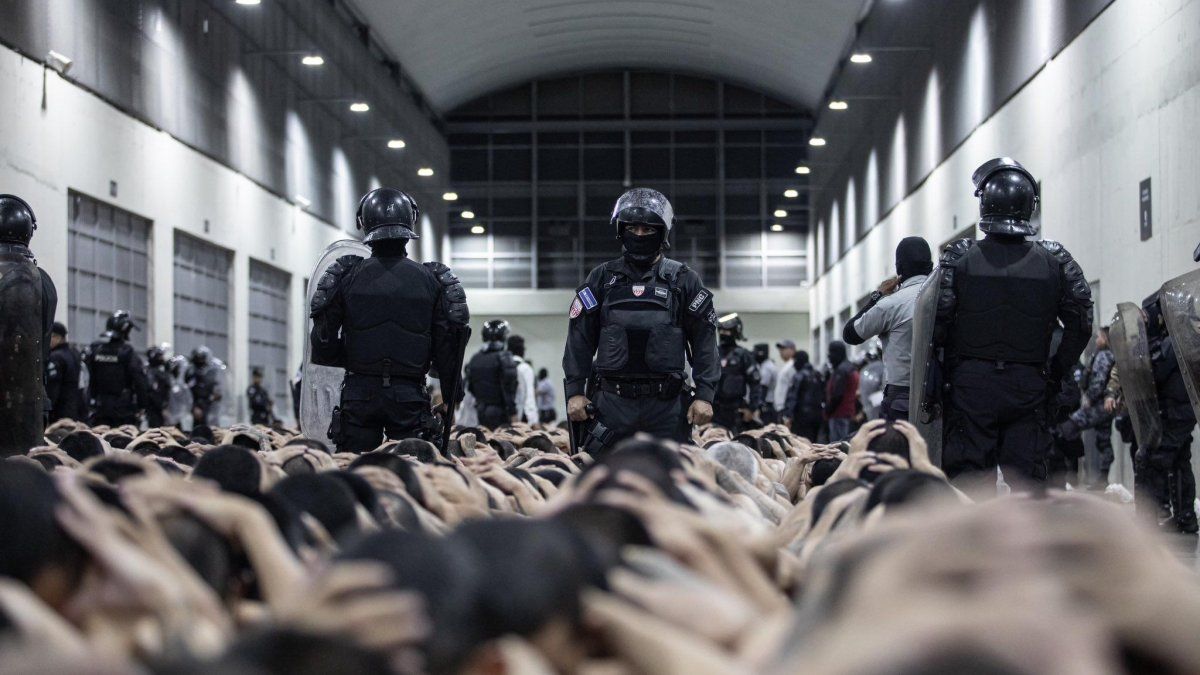The large farmers’ protests caused quite a stir in Germany. And farmers are also demonstrating elsewhere in Europe. Are they facing the same problems?
Blocked highways, columns of tractors and angry farmers: It’s not just in Germany that farmers are currently expressing their frustration loudly. From Romania to Lithuania and France there are blockades and protests. In France, protests have been announced for today in around 85 of the 101 departments.
“All European farmers have been fed up for a long time,” says Alessandra Kirsch, head of studies at the Agriculture Stratégies think tank, to the German Press Agency. Agricultural prices have been quite good so far, so farmers remain confident.
But the beginning of the year was difficult and prices were falling. “It took virtually nothing for the straw to break the camel’s back,” says the agricultural expert. “Everyone really shares the feeling that more and more is being asked of them.”
Fight against regulations from Paris and Brussels
In France, farmers’ dissatisfaction has been blazing for months. They are bothered by falling revenues, environmental regulations from Brussels and, in general, too many requirements. And recently, agricultural diesel also became more expensive in France. For several days now, farmers have been blocking highways and dumping tires and waste in front of authorities. Some protesters also reportedly looted trucks from abroad and threw the fruits and vegetables onto the road in a fight against alleged uneven playing fields.
The unions are demanding emergency aid for the sectors that are doing the worst – especially organic farming and winegrowing – as well as compensation for the higher diesel prices. In addition, regulations on water withdrawal and the use of plant protection products should be withdrawn. Right-wing extremists are trying to take advantage of the protests and portray themselves as understanding the farmers.
Frustration over grain imports from the East
Farmers in Poland have been protesting for months. The protest is primarily directed against duty-free imports of grain and other agricultural products from Ukraine. Farmers complain that these products are hurting their prices. The protest is supported by the right-wing national party Konfederacja, which relies on anti-Ukrainian propaganda.
In Lithuania this week, several thousand farmers demonstrated against the austerity plans and agricultural policies of the government of the Baltic EU country. They are dissatisfied with regulations on protected areas, their income situation and milk prices and are demanding that the transit of Russian grain through Lithuania be stopped. Similar to Germany, they are also concerned about the price of fuel.
Trouble over agricultural diesel
In Germany, protests broke out over the planned end of subsidies for agricultural diesel, for example. The plans have now been toned down. In order to save money in the 2024 budget, the agricultural diesel subsidy that has existed for more than 70 years is to end – instead of all at once as originally planned, now gradually over three years. The government has completely abandoned the planned deletion of the vehicle tax exemption for agricultural vehicles. The industry associations are demanding a complete withdrawal of the additional burdens.
According to Magdeburg extremism researcher Matthias Quent, nationalist, right-wing extremist and conspiracy ideological actors tried to politically exploit the movement in Germany. In some cases, demonstrators used drastic symbolism and, for example, built gallows on which a traffic light hung.
German protests as a role model?
In Romania, farmers and transport companies blocked roads with tractors for days, including at border crossings with Hungary, Serbia and Ukraine. The demonstrations in Germany could have been a model.
The protests have now subsided significantly because the government has promised to fulfill one of the main demands – reducing car insurance costs. In addition, an attempt by right-wing extremist politicians to exploit the protests has put a damper on them: the majority of farmers want nothing to do with the right-wing extremists. Other demands – tax relief, more subsidies, cheaper loans – remained open.
Valve for general dissatisfaction
In the Netherlands, the farmers’ protests were a moment ago, but they had a huge impact. In 2021 and 2022, thousands of farmers across the country protested in often violent actions against environmental regulations that are estimated to lead to the closure of more than 30 percent of farms.
The farmers’ protests also became an outlet for general dissatisfaction among citizens. A new right-wing populist party was founded, the Farmer Citizens Movement BBB. And other radical right-wing parties also tried to use the farmers’ discontent for their own purposes.
In the regional elections in spring 2023, the right-wing BBB immediately became the strongest force in all regions. The BBB also made strong gains in the most recent parliamentary election in October 2023 and could now even move into the government, together with the anti-Islam party of right-wing populist Geert Wilders and two other right-wing parties.
Criticism of the EU’s agricultural policy
Expert Kirsch sees the criticism primarily of the common EU agricultural policy. The EU pays farmers tens of billions in support every year. A large part of the money is allocated primarily based on area, but there are also payments that are linked to environmental requirements, for example. The budget is not high enough and the awarding is no longer adapted to today’s needs.
Agricultural sociologist François Purseigle from the Toulouse Agricultural University INP-ENSAT also sees problems here. “These movements in Europe show one thing: how difficult it is for EU agricultural policy to support a wide variety of agricultural models and corporate projects.”
Both experts also emphasize that the protests should not be lumped together. Depending on the country, there are specific reasons for the frustration.
Source: Stern




